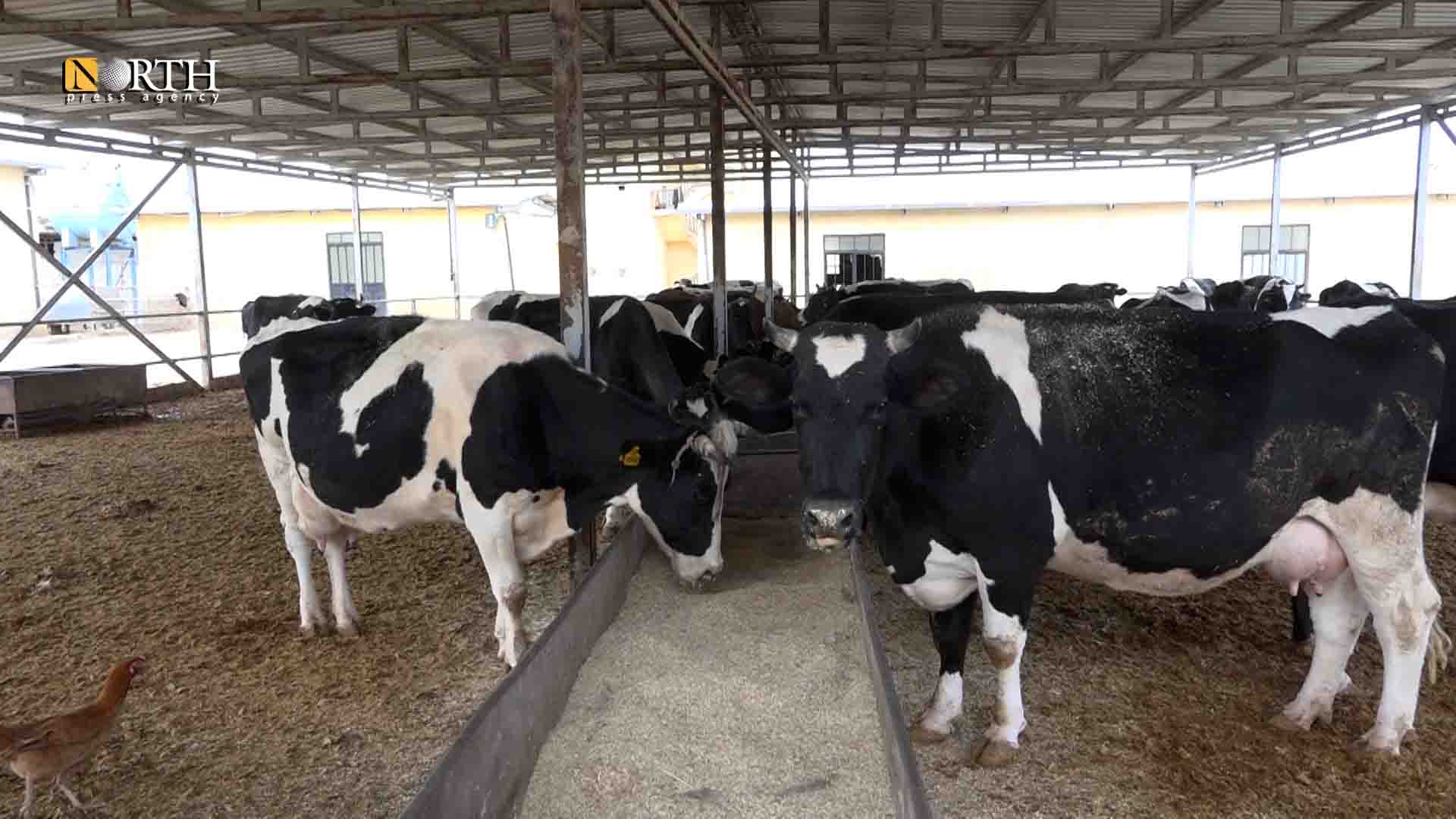KOBANI, Syria (North Press) – Cows breeding project, of the Economy Board in the Euphrates Region of Autonomous Administration in North and East Syria (AANES), in Kobani, has been securing the local markets needs of yoghurt and milk for four years, in the light of the lack of such kind of farms.
The cow project in the village of Sheikh Joban includes 68 cows and calves, while cow’s milk production reaches about 200 kilograms, according to those in charge for the project.
Abdo Hanifi, a shop owner in Helinj village southeastern Syria’s city of Kobani, told North Press that he often got 10 buckets of yogurt of this project, but because “most people demand the yoghurt produced in the project of Sheikh Joban and I can even buy 20 buckets if it is available,” he added.
“Costumers do not buy home-made yoghurt due to the outbreak of diseases,” he said.
Muhammad Sam’o, a Resident from Helinj, said that the yoghurt came from the project was good, healthy and had no smells, “We ask for increasing the assigned amounts in our village since the allocated quantity is not sufficient,” he added.
A kilogram of the yogurt is sold for SYP 550, a medical team and vets give vaccines and provide cows with the needed medicine such as vitamin C, and paracetamol.
The cows’ nutrition system verified including feed mixtures to maintain the immunity of cows and increase the milk production in addition to feed for raising and fattening calves, according to those in charge for the project.
“We sell milk to the ice cream factories in the summer and in the winter; we turn it to yoghurt and sell it to the shops in the neighboring villages,” Nada Ali, an engineer and the supervisor of the livestock projects in the Economic Board of the Euphrates Region, said.
“This project is profitable regarding the increasing cows’ numbers, and we started the project with only 30 cows four years ago, but the number is increasing,” Ali added.
The engineer indicated that the project will be expanded to increase the number of cows, in addition to a study that has been submitted to establish a dairy and cheese factory that will be attached to the project.
A section for raising sheep was recently allocated within the project, where about 500 sheep are currently being raised, and their production of milk and yoghurt will be sold to the local market in the future, according to Ali.
The project, in its two parts for raising cows and sheep, provides job opportunities for 12 persons from three displaced families from Hama and its countryside.

